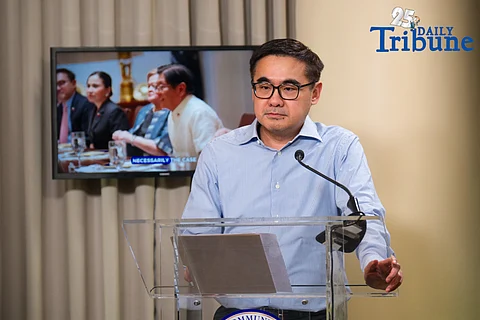
- NEWS
- the EDIT
- COMMENTARY
- BUSINESS
- LIFE
- SHOW
- ACTION
- GLOBAL GOALS
- SNAPS
- DYARYO TIRADA
- MORE

Secretary Frederick Go, Special Assistant to the President for Investment and Economic Affairs (SAPIEA), provided clarifications on various aspects of the trade agreement between the Philippines and the United States.
"Mayroon po akong apat na gustong i-explain po sa inyo. Ang unang-una gusto kong ipaliwanag sa inyo na ito dahil kapag mababa ang ating taripa makakaattract po tayo ng mga foreign investors in the Philippines para magtayo ng mga pabrika magtayo ng mga negosyo sa Pilipinas para makapagexport ng kanilang mga produkto sa Amerika," Go explained.
Second, he explained that the tariffs will not be paid by the Philippine government, but by American importers and the buyers of products from different parts of the world. In the end, these costs will be shouldered by the consumers.
Third, he highlighted the 19 percent tariff imposed on Philippine exports, which is among the lowest in Southeast Asia — second only to Singapore, which has a 10 percent tariff. “Bakit po ito importante? Importante ito dahil kapag mababa ang ating taripa makakaattract po tayo ng mga foreign investors in the Philippines para magtayo ng mga pabrika magtayo ng mga negosyo sa Pilipinas para makapagexport ng kanilang mga produkto sa Amerika,” he added.
According to Go, if we don’t lower our tariffs, foreign direct investors might choose to set up their factories or businesses in other Southeast Asian countries instead.
Earlier, in a joint statement with Trade and Industry (DTI) Secretary Cristina Roque, they said that this could encourage foreign companies aiming to access the U.S. market to relocate their operations to the Philippines rather than to other ASEAN countries.
